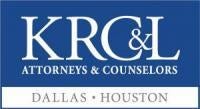Ever-changing technologies, the growth of free trade over the past decade, and the development of increased industry in developing countries around the world have resulted in an explosion of new products available to American consumers. While few would argue with the benefits associated with greater consumer choice, the quality of many of the new products, especially those imported from abroad, has been gaining increased media attention. Anyone who has paid attention to the news over the past year has noticed the increase in product defect claims by consumers, especially against foreign manufacturers. Many of these disputes end up in litigation, not only against the manufacturer, but also against the seller or distributor of the product.
Often, companies are sued for simply selling an allegedly defective product that was manufactured by another party. The Texas legislature recognized this potential and enacted legislation that provides at least some protection for "innocent" sellers, but which does not always provide protection. Even an "innocent" seller can be held responsiblie under certain situations.
Chapter 82 of the Texas Civil Practice and Remedies Code, which was enacted by the legislature in 1993, addresses the liability of non-manufacturing sellers in products liability lawsuits. It provides protections and benefits for innocent sellers in litigation arising from allegedly defective products. In analyzing the protections and benefits afforded by Chapter 82, several immediate questions come to mind.
Why was Chapter 82 enacted in the first place?
According to the Supreme Court of Texas, the intended purpose of Chapter 82 is to protect innocent sellers who are made parties to products liability lawsuits by assigning responsibility for the burden and cost of defending such lawsuits onto the manufacturer of the allegedly defective product. General Motors Corp. v. Hudiburg Chevrolet, Inc., 199 S.W.3d 249, 262 (Tex. 2006). Primary liability is effectively placed on the manufacturer, as opposed to the innocent seller, since manufacturers are usually in a better position to recognize and remedy product defects. Graco, Inc. v. CRC, Inc. of Texas, 47 S.W.3d 732, 745 (Tex. App.—Dallas 2001, pet. denied). Additionally, the provisions of Chapter 82 were crafted in order to provide an equitable balance between protecting the right of the consumer to sue any party placing a product into the stream of commerce and protecting innocent sellers from the unfairness of the financial burden of establishing the seller's lack of liability. Fitzgerald v. Advanced Spine Fixation Systems, Inc., 996 S.W.2d 864, 868-69 (Tex. 1999).
Who qualifies as "sellers" and "manufacturers" pursuant to Chapter 82?
Section 82.001 of the Texas Civil Practice and Remedies Code defines a "seller" as anyone "engaged in the business of distributing or otherwise placing, for any commercial purpose, in the stream of commerce, for use or consumption a product or any component part thereof." Similarly, this statute defines a "manufacturer" as anyone "who is a designer, formulator, constructor, rebuilder, fabricator, producer, compounder, processor, or assembler of any product or any component part thereof and who places the product or any component thereof in the stream of commerce." Although a manufacturer is commonly considered the person or entity that "builds" the product, the definition adopted by the Texas legislature is considerably broader than the commonly recognized usage of the term. With regard to Chapter 82, anyone who is involved in any way with the design or assembly of the product, no matter how insignificant that involvement might be, can be considered a manufacturer pursuant to Chapter 82, and potentially not afforded the protections and benefits provided to innocent sellers.
Notably, the Supreme Court of Texas has recognized that the definitions of "seller" and "manufacturer," as defined by Section 82.001, are actually overlapping definitions. In General Motors Corp. v. Hudiburg Chevrolet, Inc., 199 S.W.3d 249, 256-57 (Tex. 2006), the Supreme Court of Texas noted that by definition, all manufacturers are also sellers. Because of this overlap, instances can and do arise in which component manufacturers actually qualify as innocent sellers pursuant to Chapter 82, and are therefore entitled to indemnification from a finished product manufacturer. FLS Miljo, Inc. v. Munters Corp., 682 F.Supp.2d 681, 689 (N.D. Tex. 2010).
How does one determine if a seller is "innocent" pursuant to Chapter 82?
While the definitions of both "seller" and "manufacturer" are structured to set forth the affirmative actions undertaken to qualify under those terms, innocent sellers are instead defined by activities that are not to be undertaken by sellers in order to qualify as "innocent." Pursuant to Section 82.003, in order to be afforded the protections and benefits of an innocent seller, the seller must not have undertaken any of the following activities with regard to the allegedly defective product:
- Participating in the design of the product;
- Providing alterations or modifications to the product when the alteration or modification was the alleged cause of injury;
- Installing the product on another product when the installation of the product on the final assembled product was the alleged cause of injury;
- Exercising control over the content of inadequate warnings or instructions accompanying the product when the alleged inadequacy of the warning or instructions was the alleged cause of injury;
- Providing an incorrect factual representation regarding the product upon which the claimant relied and such incorrect representation was the alleged cause of injury; and
- Failing to disclose a known product defect which was the alleged cause of injury.
Finally, and most importantly with regard to products manufactured overseas, Chapter 82 does not provide protections and benefits to sellers of products whose manufacturers are either insolvent or not subject to the jurisdiction of the court in which the lawsuit was filed. In other words, even if the seller did not undertake any of the above activities, if the manufacturer of the allegedly defective product is either insolvent or not subject to the court's jurisdiction, the seller will not be afforded the protections provided to innocent sellers, but instead will be treated as having the same liability as the manufacturer. This provision is intended to protect the consumer and allow the injured party a remedy for defective products.
What are the indemnification rights of the innocent seller?
If the seller did not undertake any of the activities set forth above, and the manufacturer of the product is solvent and subject to the court's jurisdiction, Chapter 82 provides that the seller is entitled to indemnity in the lawsuit by the product's manufacturer. According to Section 82.002, a manufacturer's duty to indemnify begins as soon as it is notified that a seller has been sued. When a manufacturer indemnifies an innocent seller, the manufacturer takes on expenses incurred by the innocent seller in defending the lawsuit. This includes expenses such as court costs, expenses related to litigation, attorney's fees, and any other reasonable damages that an innocent seller incurs to enforce its right to indemnification by the product manufacturer. Additionally, the manufacturer will be responsible for any funds paid in settlement of the lawsuit or any damages attributed to the innocent seller in a final judgment in the event the claimant is successful in a trial on the merits.
Unlike indemnity provisions available under common law, in which indemnification only arises upon a finding of liability on the part of the manufacturer, indemnification pursuant to Chapter 82 is based solely on the pleadings of the injured party. Therefore, a seller who meets the "innocence" requirements set forth in Chapter 82 does not have to wait upon a finding of liability on the part of the manufacturer in order to be entitled to indemnity from the manufacturer. This allows the innocent seller to seek immediate coverage for the expenses incurred in its defense from the manufacturer, as opposed to seeking reimbursement only after a finding of liability on the manufacturer in the common law indemnification scenario.
Must a plaintiff establish that an innocent seller actually sold the allegedly defective product in order for the innocent seller to be entitled to indemnification?
In Texas, the manufacturer's duty of indemnification is invoked even if the plaintiff has not shown that the product was purchased from the particular seller named in the lawsuit. Fitzgerald v. Advanced Spine Fixation Systems, Inc., 996 S.W.2d 864, 867-69 (Tex. 1999). Furthermore, at least one Texas court has held that the manufacturer's duty to indemnify an innocent seller still exists, even when the evidence indicates that the innocent seller named by a plaintiff was not the seller of the allegedly defective product at all. In Freeman Financial Inv. Co. v. Toyota Motor Corp., 109 S.W.3d 29 (Tex. App.—Dallas 2003, pet. denied), the purchaser of a vehicle brought a products liability action against the manufacturer as well as the dealership identified as the seller of the vehicle. There, the manufacturer refused to indemnify the dealership identified as the seller of the vehicle, in part, because although the plaintiff continued to identify the named dealership as the seller, evidence established that the vehicle was actually purchased at another dealership. The court, in holding that the manufacturer did have a duty to indemnify the named dealership, noted that because the plaintiff's pleading still identified the named dealership as the seller of the vehicle, in spite of evidence to the contrary, the duty to indemnify set forth in Chapter 82 was still invoked. Further, the court construed the indemnity provisions of Chapter 82 to require the manufacturer of the product "to indemnify a retailer that was forced to defend itself in products liability litigation, even though the seller, who sold products of the same type involved in the suit, did not sell the particular product that is alleged to have harmed the plaintiff." In other words, as long as a pleading identifies an innocent seller as the retailer of the allegedly defective product, even in spite of clear evidence to the contrary, the duty of the manufacturer to identify that innocent seller still exists.
Although the protections and benefits afforded to innocent sellers pursuant to Chapter 82 do not absolve such sellers from the threat of litigation, they do provide innocent sellers with a remedy for avoiding the often significant costs and expenses incurred in defending a products liability lawsuit naming the seller as a party. As long as a seller meets the requirements set forth in Chapter 82, the seller of an allegedly defective product made the basis of any lawsuit should immediately seek the advice of legal counsel and request indemnity from the manufacturer.






 />i
/>i

